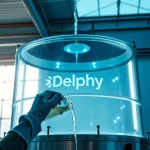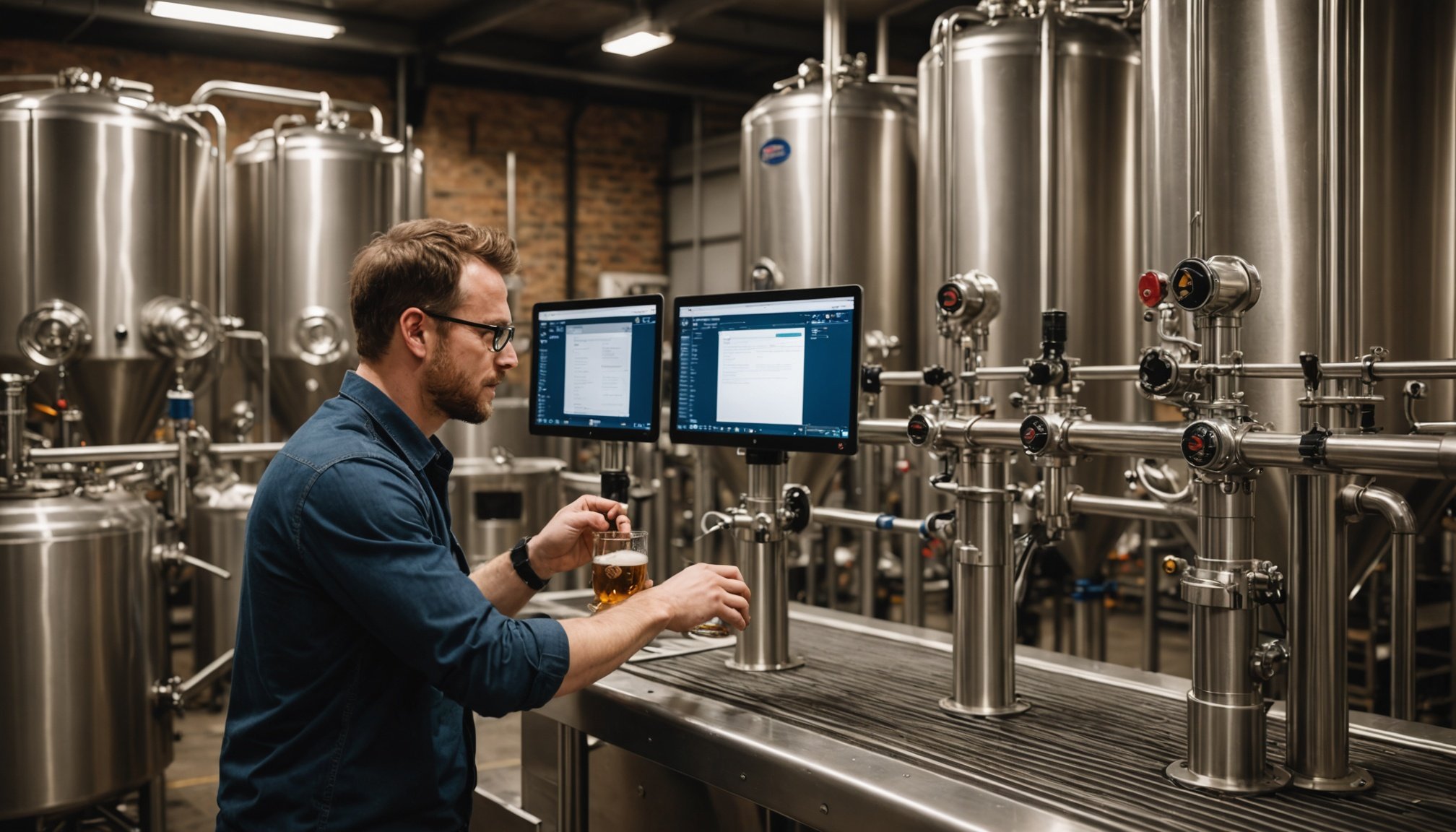Overview of AI Technologies in Quality Assurance
AI technologies have transformed the landscape of quality assurance, particularly in the brewing industry. By integrating advanced AI systems, breweries enhance the accuracy and efficiency of their quality checks, ensuring that the final product meets the highest standards. AI technologies include machine learning and predictive analytics, which help in identifying inconsistencies earlier in the brewing process, thus minimizing waste and improving product quality.
In recent years, there has been a significant trend in the adoption of AI among breweries. This shift is driven by the increasing need for precision and the ability to maintain consistent quality in production. The breweries that incorporate AI technologies can quickly adapt to market changes and meet consumer expectations effectively.
Also to read : Transforming Customer Delight: The Role of Predictive Analytics in Enhancing User Experience for UK Financial Institutions
Quality assurance plays a critical role in the brewing process. It ensures that each batch produced aligns with the brand’s standards, maintaining flavour, aroma, and consistency. By utilizing AI technologies, breweries can automate quality checks, leading to fewer errors and improved consistency. This advancement not only enhances the brewing process but also significantly increases customer satisfaction, reinforcing the value of AI in this traditional industry.
Key AI Tools and Techniques Used in Breweries
The brewing industry is witnessing a revolution with AI tools enhancing quality assurance. Machine learning algorithms play a pivotal role. They process vast data for predicting outcomes, enabling breweries to spot patterns that indicate potential issues. For example, these algorithms can detect subtle variations in fermentation that might affect flavour, ensuring consistent product quality.
Also to discover : Revolutionizing UK Breweries: Unlocking Peak Productivity Through Data Analytics
Machine Learning Algorithms
Machine learning in breweries serves as the backbone for automation and prediction. Algorithms analyze historical production data to forecast potential deviations, allowing preemptive action. This level of insight helps ensure the beverage’s taste remains consistent across batches.
Predictive Analytics
Predictive analytics empower breweries by refining production processes. By utilizing historical data, it helps anticipate changes in production requirements and forecast demand. This foresight aids in optimising resource allocation and reducing waste, ultimately enhancing operational efficiency.
Computer Vision Systems
Computer vision systems help in meticulous quality checks. These systems are adept at inspecting bottling lines, identifying defects or contamination. By automating visual inspections, breweries reduce the likelihood of human error, maintaining high standards of quality assurance and consumer trust.
Case Studies of AI Adoption in UK Breweries
A fascinating glimpse into the adoption of AI technologies in UK breweries shows transformative effects on quality assurance. One notable case study is that of a pioneering brewery in London that integrated machine learning algorithms to revolutionise its fermentation process. By leveraging AI tools, this brewery could swiftly identify and correct inconsistencies, ensuring each batch met the desired standards of excellence.
The comparison between traditional methods and AI-driven quality control is striking. Traditionally, quality checks relied heavily on manual inspections, which were time-consuming and prone to human error. However, through AI implementation, these processes are now faster and significantly more accurate. The brewery’s transition showcases how AI tools minimise waste and enhance product consistency.
Lessons gleaned from these AI implementations reveal several benefits, such as reduced operational costs and increased customer satisfaction. UK breweries adopting AI drive innovative practices, spotlighting the effectiveness of AI in augmenting quality assurance. As these case studies demonstrate, UK breweries set a precedent for embracing technology within traditional industries. This advancement underscores the practical advantages and outcomes AI can bring to the table.
Benefits of Integrating AI in Quality Assurance
The integration of AI in quality assurance within the brewing industry offers numerous benefits, transforming traditional practices. AI technologies enhance the accuracy and consistency of quality assessments, ensuring that even the slightest faults are swiftly identified and corrected. This technological leap reduces human error, a prevalent issue in manual quality checks.
One of the significant benefits is the reduction in operational costs. Automated processes enable breweries to utilise resources efficiently, reducing the need for constant manual input and costly error rectification. As a result, staff can focus on more strategic tasks, enhancing overall productivity.
Moreover, increased customer satisfaction is a direct outcome of integrating AI. By guaranteeing product integrity, consumers enjoy consistent quality, leading to heightened brand loyalty and trust. AI-driven quality assurance ensures that each bottle or can meets predefined standards, fostering a favourable customer experience.
Breweries that adopt AI in quality assurance not only streamline operations but also pave the way for innovation, positioning themselves at the forefront of the industry. The measurable benefits, such as enhanced accuracy and cost efficiency, underscore the value of AI in modern brewing practices.
Challenges in Implementing AI Technologies
Implementing AI technologies in quality assurance presents several challenges to breweries. One primary obstacle is the integration process itself. Transitioning from traditional methods to advanced AI systems requires significant changes in infrastructure, which can be both time-consuming and costly. These changes often demand substantial investment in technology and workforce training.
Another critical challenge is addressing the resistance to change among staff. Employees accustomed to manual processes may feel threatened or overwhelmed by the introduction of AI tools. To mitigate this, it is essential to involve staff early in the implementation process, providing clear communication about the benefits and offering comprehensive training programmes.
Moreover, the risk of implementation mistakes is a concern. Misconfigurations or inaccurate calibration of AI systems can lead to unreliable results, impacting the quality of the final product. To address this, breweries must engage with experienced AI vendors and conduct thorough testing phases before full-scale deployment. Ensuring a smooth transition demands a strategic approach, addressing both technical and human factors, to unlock AI’s full potential in enhancing quality assurance.
Practical Insights on Measuring AI Impact
For breweries, understanding the impact of AI technologies on quality assurance is essential. Key performance indicators (KPIs) are critical for assessing AI success. These may include metrics such as defect reduction rate, efficiency in quality checks, and customer satisfaction scores. Monitoring these indicators helps in evaluating how effectively AI tools contribute to operational improvements.
Breweries can employ continuous improvement methods post-AI implementation. Regular audits and feedback loops allow for ongoing assessment and refinement of AI systems, facilitating sustained enhancements in product quality. Engaging staff in these processes encourages ownership and insight into AI-driven changes, fostering a culture of innovation.
To accurately measure success, breweries should leverage data analysis strategies. Collecting and examining data from AI-enhanced processes offer insights into performance patterns and areas needing adjustment. By setting clear benchmarks, breweries can track the progress of AI initiatives and make informed decisions about future technology investments.
Relevant Examples
Breweries witnessing a 30% reduction in production errors post-AI deployment exemplify how strategic data analysis transforms operations. These practices not only demonstrate AI’s potential but also underline the importance of meticulous measurement techniques in realising quality assurance goals.
Future Trends in AI and Quality Assurance for Breweries
In the brewing industry, predicting future trends in AI technologies is crucial for staying competitive. Emerging technologies promise to revolutionise quality assurance, offering potential for increased AI innovation. A key advancement involves AI-driven precision agriculture, which offers predictive insights into crop yield and quality, ultimately affecting the brewing ingredients. By harnessing this data, breweries can enhance product consistency and reduce supply chain disruptions.
Anticipating how AI will evolve, we see a move towards more sophisticated machine learning models and automation systems. These systems could proactively manage maintenance schedules, minimising downtime and ensuring continued product quality. Additionally, the integration of IoT devices will likely become more prevalent, providing real-time monitoring of production variables.
For breweries, preparing for these changes involves investing in scalable AI solutions and fostering a culture of continuous learning among employees. By understanding and adapting to these emerging trends, breweries will be well-positioned to maintain high-quality standards in their products, ensuring both operational efficiency and customer satisfaction. Engaging in ongoing collaborations with technology partners can help navigate these innovations effectively.
Practical Insights on Measuring AI Impact
Effectively measuring the impact of AI technologies in quality assurance requires a structured approach. Breweries should focus on key performance indicators (KPIs) to determine AI success. Fundamental KPIs include the defect reduction rate, efficiency improvements in quality checks, and elevated customer satisfaction scores.
Continuous Improvement Methods
Implementing continuous improvement methods post-AI integration is crucial for sustaining high-quality standards. Breweries can engage in regular audits and establish feedback loops, enabling ongoing refinement of AI systems. This systematic review process fosters an environment of constant enhancement, encouraging staff engagement and ownership over innovative changes.
Data Analysis Strategies
To accurately measure AI’s impact, adopting comprehensive data analysis strategies is essential. By collecting and dissecting data from AI-enhanced processes, breweries gain insights into performance efficiencies and potential areas for further improvement. Setting clear benchmarks allows tracking AI initiatives’ progress, helping in strategic decision-making regarding future technology investments.
Relevant examples, such as a 30% drop in production errors post-AI deployment, underscore the potency of well-executed data analysis. These metrics validate AI’s utility while highlighting the importance of precise measurement techniques in achieving and maintaining superior quality assurance outcomes.











